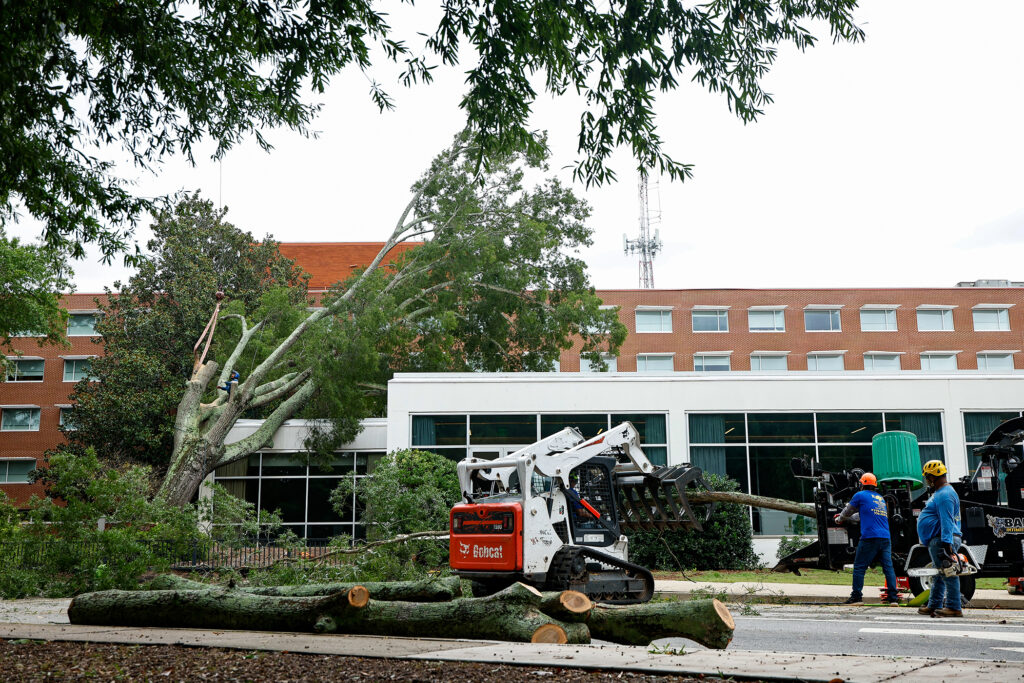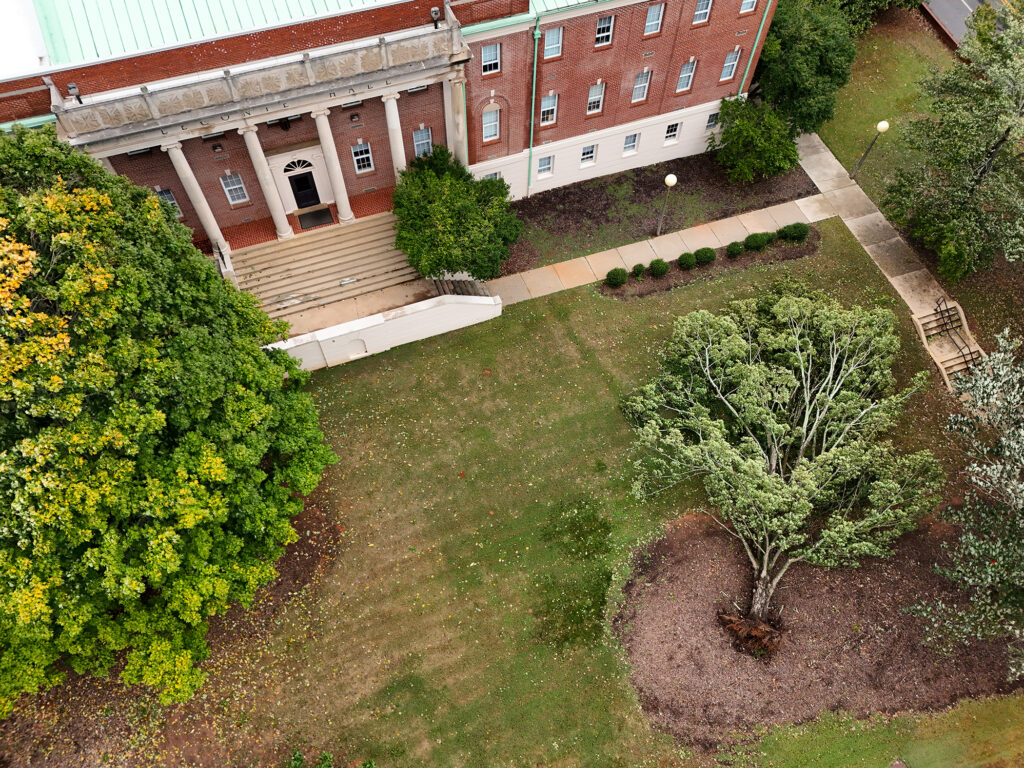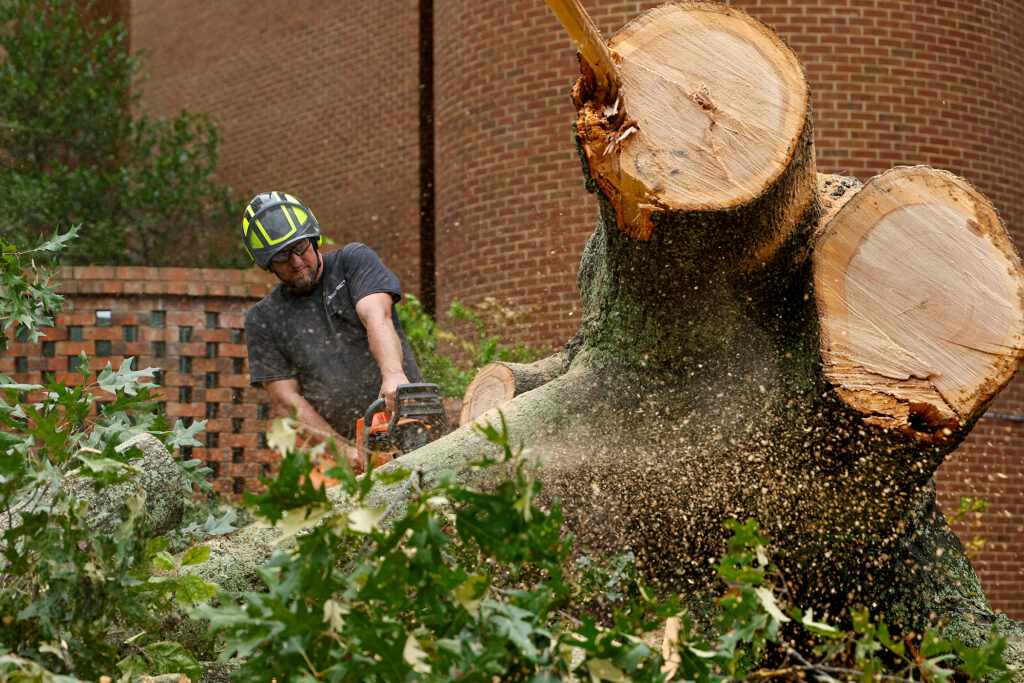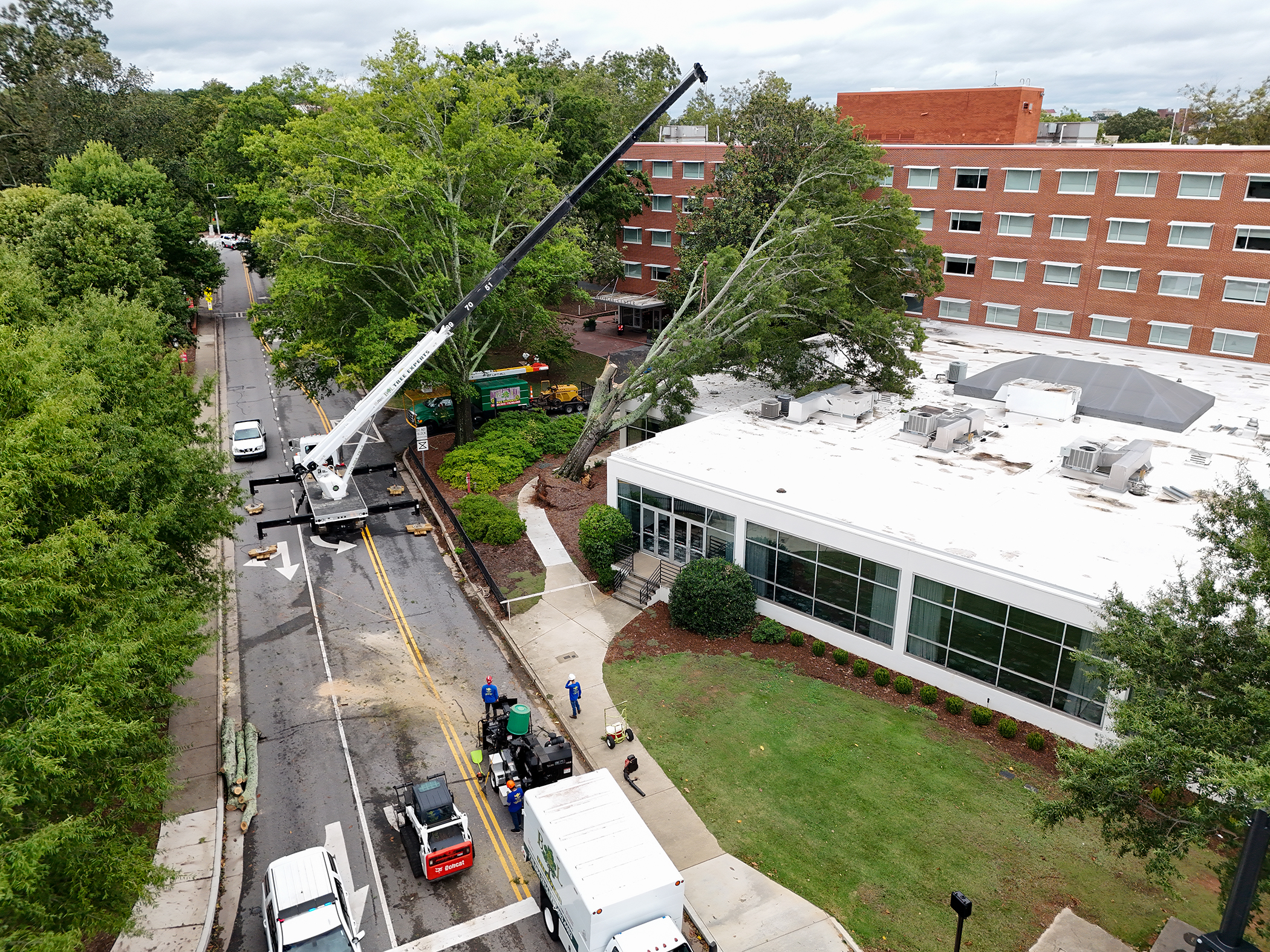The University of Georgia’s main campus was fortunate to emerge relatively unscathed after Hurricane Helene barreled through the state early Friday morning.
The hurricane made landfall Thursday along an area known as Florida’s big bend. It moved quickly northward, bringing heavy rains and damaging winds that ravaged communities throughout the state.
The storm was powerful enough in Athens to topple large trees, flood low-lying areas and knock out power to businesses and households. Debris also made roadways in some areas impassable.

However, the impact was more significant at our extended campus locations. While Griffin reported no major damage, Tifton was hit much harder, with dozens of downed trees and power outages, as well as flooding in several buildings. Damage to farm operations across south Georgia appears to be extensive. The university’s coastal facilities and 4H centers reported power loss and debris with only minor building damage in preliminary assessments.
“Our top priority will always be the safety and well-being of our students, faculty and staff,” said UGA President Jere W. Morehead. “I am extremely grateful for all of our first responders and dedicated university staff who worked to keep essential services running and to keep our community safe from harm.”

Staff in UGA’s Office of Emergency Preparedness monitored the storm closely in the days prior to landfall and provided critical safety updates to the university community.
Dozens of university staff members were deployed after the storm passed to clear downed trees from roads, remove debris, and assess buildings for damage.
“Thanks to the work of our teams across the university to prepare for and respond to Helene, we were able to maintain the safety of our communities and keep disruptions to a minimum,” said Ryan Nesbit, vice president for finance and administration. “I am grateful to everyone who worked so diligently on behalf of our campus community.”

While the university canceled all in-person classes, campus events and activities on Thursday and Friday, UGA residence halls remained open, campus transit continued to run until weather conditions made it unsafe to do so, and dining halls continued to prepare and serve food.
“It was the collaborative effort of workers across the university that allowed us to navigate the storm,” said Adam Fouche, executive director of UGA’s Office of Emergency Preparedness. “It is unusual to see tropical storms this far inland, but our staff prepares for situations like this so that we are ready to act when the need arises.”
Crews will continue to assess damage and make necessary repairs to campus facilities in the days ahead. In addition, the Tifton Campus Conference Center will house 2,000 storm response personnel as they work to restore power across the region. UGA Extension agents are also moving across the state to assess damage and provide assistance.


